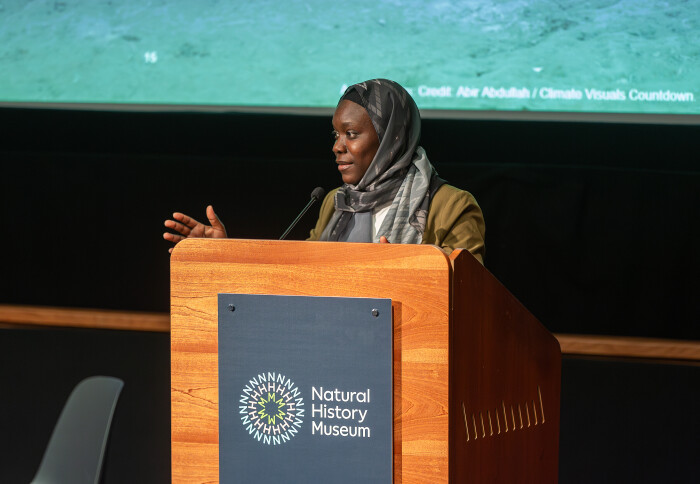Countdown to COP29: Negotiators and scientists meet to raise global ambition

Countries must ‘radically step up efforts’ to limit global warming to 1.5°C, the chair of Imperial’s Grantham Institute has warned.
Speaking at Countdown to COP29, marking the midway point between UN climate conferences, Professor Sir Brian Hoskins called on countries to deliver national plans that put the world on a trajectory to limit the worst effects of climate change.
Under the terms of the Paris Agreement, countries are expected to submit nationally determined contribution plans (NDCs) every five years, setting out how they will contribute to the delivery of the Paris Agreement goals to reduce their emissions and adapt to the impacts of climate change.
With the next round of NDCs due in 2025, Professor Sir Hoskins said “all eyes are now on the international community” to implement the outcomes of last year’s COP28 Global Stocktake and close the gap to 1.5°C pathways.
The event, hosted by the Grantham Institute and the Delegation of the EU to the UK at the Natural History Museum last Wednesday (26 June), brought together diplomats, negotiators, policy experts and scientists with the aim of raising ambition on the road to COP29 in Baku.

Reality check
Francella Strickland, Ambassador of the Independent State of Samoa to Belgium and the European Union, told the audience that climate change was the lived reality of Pacific small island developing states.
The world is watching, young people are watching. Fatou Jeng Youth Climate Advisor to the UN Secretary General
“Everything that shouldn’t increase seems to be increasing – increasing sea level rises, increasing temperatures, increasing debt, increasing coastal erosion, increasing ocean acidification and yet decreasing climate finance to support us to help adapt or deal with the loss and damages.”
The meeting also heard from Fatou Jeng, a Youth Climate Advisor to the UN Secretary General António Gutteres, who called on negotiators to remember that decisions taken today will impacts on the lives of young people and future generations.
“The world is watching, young people are watching,” she said. “It’s really important that we ensure that COP29 is different from the other COPs. We need to make sure that we come out with tangible actions from COP29. We need to make sure we get bolder commitments at COP29.”
An ‘enabling COP’
COP29 is viewed as a critical COP for climate finance, with a new climate finance goal that takes into account the needs and priorities of developing countries expected to be among the most significant decisions of the conference. Significant work remains, however, to ensure a successful outcome.

Yalchin Rafiev, Lead Negotiator for COP29 and Deputy Foreign Minister of the Republic of Azerbaijan, said the “golden frame for that is the figure that would be adequate to the urgency and scale of the problem”.
Mr Rafiev also said that while this year’s COP has been labelled the ‘finance COP’, it would also be an ‘enabling COP’: “We want to enable action on the climate front through mobilising: mobilising people, mobilising finance or resources, and mobilising solutions.”
The public want climate action
Strong champions for climate action play an important role in raising ambition in the lead up to the COP negotiations. The European Commission’s Jake Werksman, Lead Climate Negotiator for the European Union, said that while there had been political shifts within the the EU, support for climate action remained strong across the bloc.
“The EU brings into these negotiations a degree of stability in terms of climate change which I think has its foundation, first and foremost, in the fact that if you poll European citizens about the issue of climate change, you’ll find that the vast majority believes the science that tells us that climate change is a serious risk and they want their governments to act upon it and act upon it with urgency.”
Several speakers also addressed the importance of turning NDCs into action through policies, regulations and incentives. Rebecca Kershaw, Business Engagement Lead for the UNFCCC's Climate Champions Team said:
“Businesses think in business cycles which are roughly ten years. These NDCs are going to set out the policy landscape for the next ten years. So how can they be used to not just do the high-level signalling that's required, but what's needed is the granularity – how does it dock into all the other policy instruments, the other parts of policy and regulation that actually affect business decision making?”
You can watch the event in full on the Grantham Institute YouTube channel.
Article text (excluding photos or graphics) © Imperial College London.
Photos and graphics subject to third party copyright used with permission or © Imperial College London.
Reporter
Conor McNally
The Grantham Institute for Climate Change